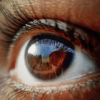Getting ready for the upcoming school year is about so much more than school supplies and snacks. So, while you’re planning pick-ups and drop-offs, you should be thinking about scheduling your child’s routine comprehensive eye exam.
Eighty percent of what your child learns in school is information that is presented visually.
Vision is a critical component of learning. As such, if a child’s eye health falls under the radar, their ability to retain, learn and perform basic tasks are at risk. Keep in mind that a healthy and efficient visual system is critical for the normal development of children.
Since a child’s vision is all they have ever known, they don’t realize they have problems. As a result, it’s essential to look for signs that suggest your child may be struggling to see. The more common symptoms include:
- Blurry vision or double vision
- Squinting or holding objects close to the eyes
- Headaches or eye strain
- Turning or tilting the head or covering or closing one eye
- Strabismus (turned eye)
- Excessive blinking
- Rubbing, tearing, itchy or burning eyes
Visit the Canadian Association of Optometrists for a comprehensive list of signs and symptoms that aren’t so obvious.
While the above list of symptoms is helpful, try observing your child during certain activities like reading, watching TV, or computer use.
Reading: They lose their place while reading or use a finger to track where they are on the page.
Watching TV: They sit too close to the TV or tilt their head with one eye closed.
Computer Use: They avoid using the computer and complain it causes eye discomfort.
Note: Often, refractive errors like myopia (nearsightedness), hyperopia (farsightedness), or astigmatism are often at fault for a child’s learning and skill development issues. It never hurts to rule out these vision issues early on and get your child back on track.
The only way to know if your child has a vision or eye health problem is to book regular comprehensive eye exams.
Frequency guidelines will help you keep your exams on track:
Infants and Toddlers (birth to 24 months): Their first eye examination should occur between 6 and 9 months.
Preschool Children (3 to 5 years): One eye examination between the ages of 3 and 5 years.
School-Age Children (6 to 19 years): Annual eye examinations are recommended.



